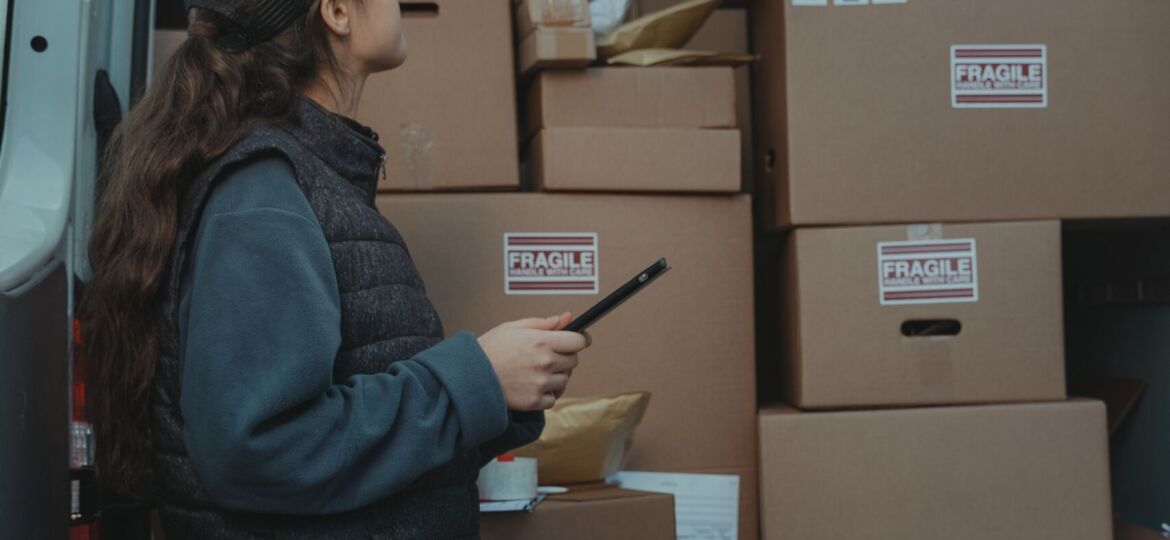
The two biggest platforms, Rakuten and Amazon, have total annual sales estimated respectively at JPY 3.43 trillion and JPY 2.75 trillion in 2019 (USD 31.7 billion and USD 25.42 billion respectively).
They offer amazing services. As a result consumers in Japan have high expectations concerning shipping or customer support. After we saw what the best methods of payment were in Japan, let’s focus on what you can do to improve your shipping service.
Customers expect a fast delivery service, especially in Japan. When they order on Amazon Rakuten, they usually receive their package the day of or a couple of days after. Of course, you cannot deliver as fast as Japanese companies do. Informing your customers that their product comes from overseas and will not be delivered in one or two days is a good way to maintain customer and company relationships.
You should check out our other articles about methods of payment and Japanese customer service to meet the customer’s wants, needs, and expectations. Remember that perfection is in the details. This even to shipping, payment, and customer service.
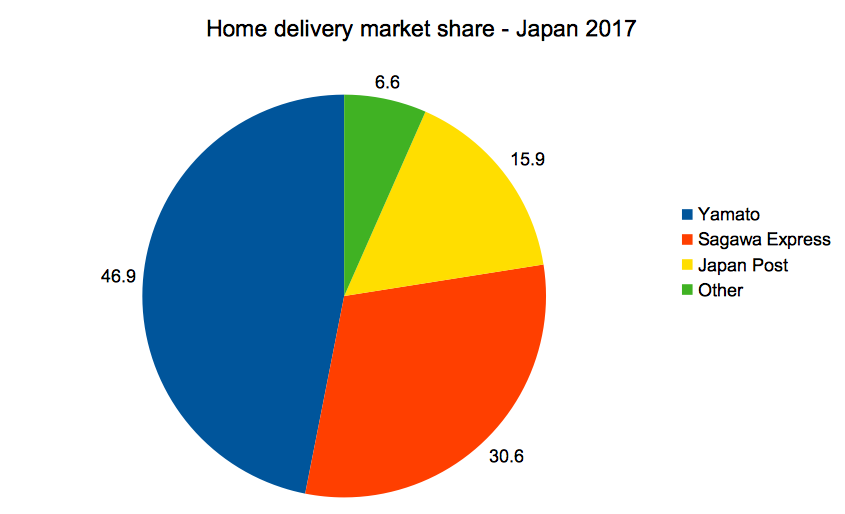
Home delivery market share in Japan. Source: FlagShipBlog, Medium (2017).
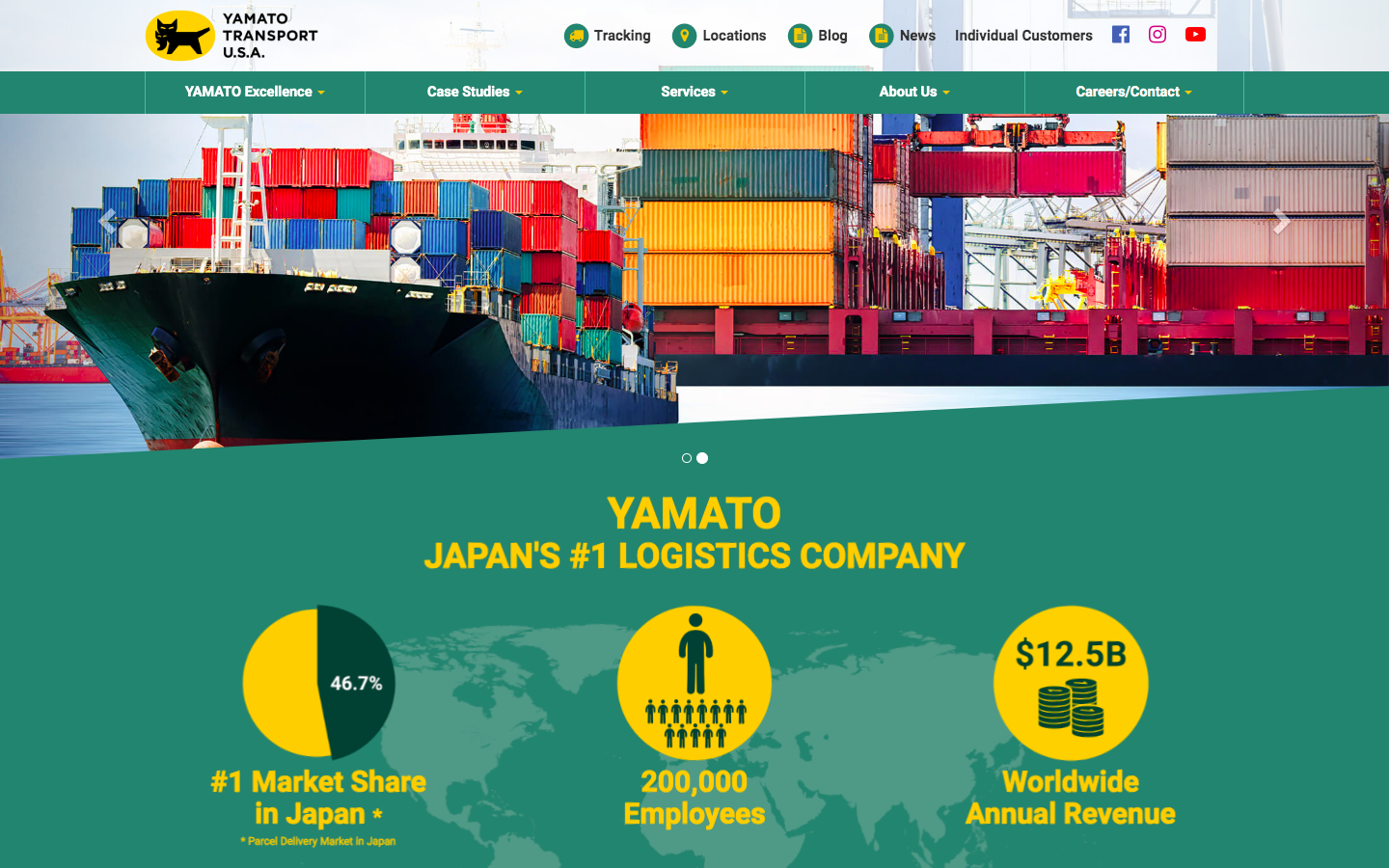 Their logo is known by everyone in Japan: a cat carrying a kitten. This symbolizes the care employees give when delivering. Yamato Transport has more than 200,000 employees and owns 46.7% of the Japanese market share. They can also pack, store and plan everything, from distribution to delivery.
Their logo is known by everyone in Japan: a cat carrying a kitten. This symbolizes the care employees give when delivering. Yamato Transport has more than 200,000 employees and owns 46.7% of the Japanese market share. They can also pack, store and plan everything, from distribution to delivery.
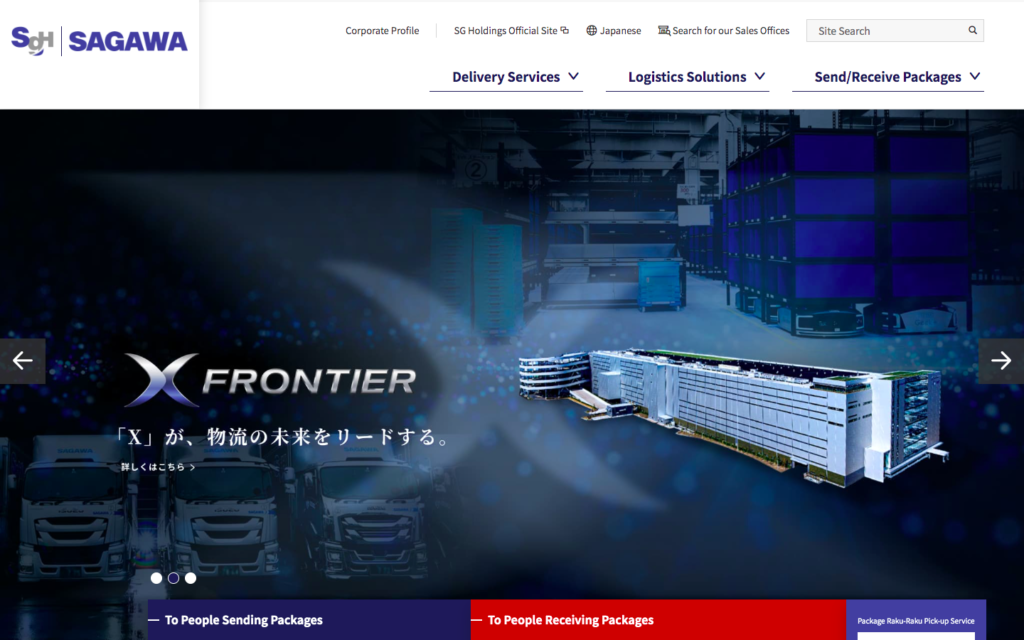
Sagawa Express offers several services, such as home delivery and logistics consulting. You can choose between their Standard, Support, or Solution offers. They also work for major companies like Amazon.
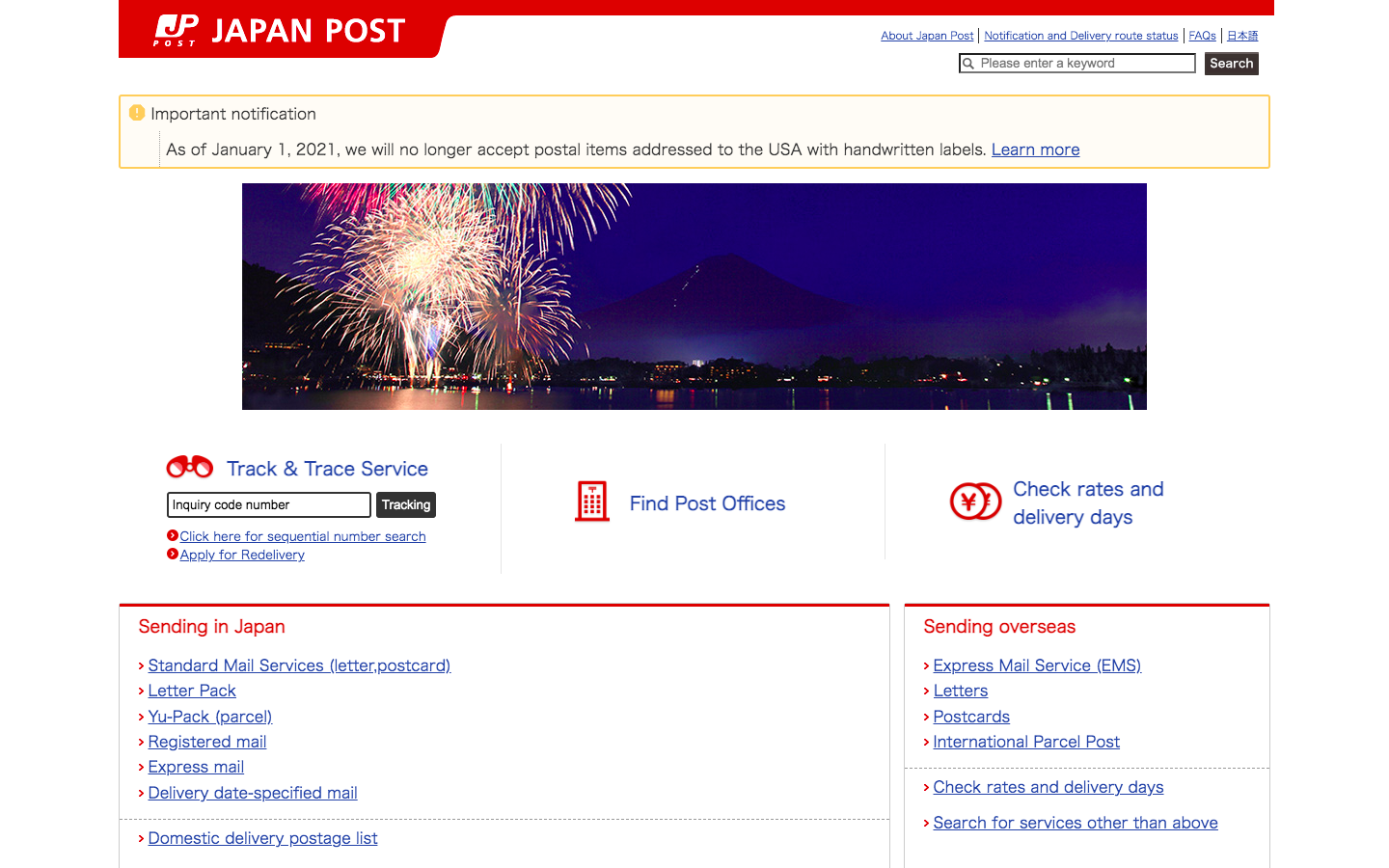 With the increasing number of customers wanting to have things delivered, Japan Post can help out with Yamato Transport and Sagawa Express. Japan Post offers a basic postal service coupled with insurance and bank services and wants to locally and nationally satisfy customers’ needs and satisfaction. The “Yu-pack” has also become popular, which includes several optional services such as Cash on Delivery.
With the increasing number of customers wanting to have things delivered, Japan Post can help out with Yamato Transport and Sagawa Express. Japan Post offers a basic postal service coupled with insurance and bank services and wants to locally and nationally satisfy customers’ needs and satisfaction. The “Yu-pack” has also become popular, which includes several optional services such as Cash on Delivery.
Here is a list of restricted items, according to Japan FedEx:
- “Alcohol
- Certain textiles
- Chemical substances (including Fertilizers)
- Chemicals
- Compressed gases and their containers
- Cosmetics and other products that are used on the human body (hair tonics, bath preparations, etc.)
- Cutlery, cookware, containers, dishes, etc. used for food, beverages, or for food preparation
- Dairy Products
- Drugs and medicines and other products such as eye drops, toothpaste, vitamins, etc. that have an effect on humans or animals
- Explosives
- Fertilizer
- Food, Food additives
- Goods that may interface with the Japan’s [sic] public infrastructure (roads, radio frequencies, telephone or power lines, etc.) can clear customs without special documents or prior approval but the end-user or reseller must obtain approval from the responsible government agency before the goods can be used in Japan. Examples of these goods include motor vehicles, electric & telecommunication equipment, radios, telephones, and modems.
- High pressure Gas
- Meat and meat products
- Medical Equipment
- Medicine
- Plants and plant products
- Radioactive Isotopes
- Rice, wheat and their products
- Sugar
- Textiles
- Toys for babies
- Tuna, Whale, Seaweed”
For these items, you need a license to ship them. Note that some products can be restricted depending on the platform you sell your product on, for example, or that the list can change over the years. Contact your partner/distributor in Japan for more information.
You should check that your product is conforming to the Japanese legislation if you want to enter the market.
To sell your product on Gloture’s e-commerce website, you need a certification for the following items:
- TELEC Certification for wireless communication technology (WiFi, Bluetooth, etc.)
- PSE Certification for built-in battery (bigger than 400mAh) or plugs
For further information, check out JQA’s list about the Testing and Certification of Electrical Equipment, Components, and Medical Devices.
Besides, Gloture cannot sell medical equipment or other medical items since we do not have the required permit.

